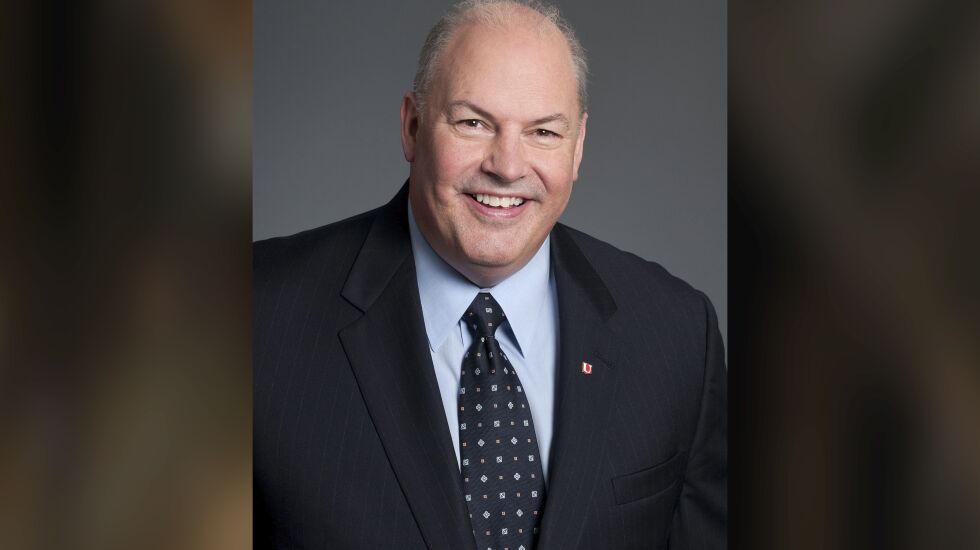
It was 1969. I was fresh out of Georgetown Law School, and my new boss, Lt. Gov. Paul Simon, gave me my first assignment: Cairo.
Cairo (affectionately mispronounced “Caro”) is at the southern tip of our state and almost 400 miles from Chicago. Part of an area known as Little Egypt, Simon aptly described it as the land of “grits and gospel music.” The rich delta soil surrounding it produced many crops including, I was surprised to see, fields of cotton.
Cairo in its day was a mother lode of opportunity. At the confluence of the Mississippi and Ohio rivers and in a “free state,” it had attracted many workers including southern Blacks en route to freedom and opportunity up North.
Over time, interstate highways became the ribbons of opportunity, and Cairo’s river connection diminished in importance. The economy lagged, and age-old racial challenges took center stage.
Though there were exceptions like Southern Illinois University in Carbondale, southern Illinois was largely segregated, with “sundown” local laws warning Blacks to be out of town by dark.
Cairo in Alexander County was no exception. Peyton Berbling, its Republican state’s attorney, could have been cast in “To Kill a Mockingbird” — a graying senior in a rumpled white suit who had his “boys” track any outsiders who lingered in his county. (I was one of those outsiders). Berbling chaired the White Citizens Council, the last public vestige of the Ku Klux Klan in our state.
This white power establishment controlled Cairo and every significant decision.
The racial pot simmered in Cairo in the early 1960s and finally blew when a charismatic local leader, Charles Koen, teamed up with a liberal young Catholic priest, Gerry Montroy, and called for an economic boycott of Cairo businesses. Marches and rallies led to gunshots and arson.
After years of struggle and racial division, the boycott collapsed the Cairo economy. The white population fled.
I told this story to Barack Obama, then a young state senator from Chicago, as we drove together to his first visit to Cairo in 2004. He was campaigning for the U.S. Senate and said later that as he listened, he did not know what to expect when we arrived.
Our schedule took us to one of a few newer brick buildings in Cairo, the Laborers Union Headquarters for Southern Illinois. Ed Smith, its president, invited us to a barbecue in the parking lot.
Fair treatment for all
Ed Smith was well known and universally respected. His southern Illinois drawl gave him local cred, and his family history in the labor movement was legendary. I’m not sure Ed ever gave a “civil rights” speech in his life. But when it came to helping workers get fair treatment, Ed didn’t care about the color of your skin. The barbecue made that clear.
Seated at the tables and rising to greet this candidate from Chicago were dozens of workers, Black and white, who were all friends of Ed Smith.
I particularly remember an older Black woman who asked me if I would take a photo of her and Barack with her little camera. She had a beautiful smile and tears in her eyes.
I didn’t realize the impact of that day until years later, when presidential candidate Obama recounted it for the national media. For Barack, it was proof positive that the politics of hope could overcome the politics of division with the right leadership.
As we reflect on the life of Ed Smith, who passed away Wednesday, I think about his barbecue in the parking lot of the Cairo Union Hall 20 years ago.
It was such an Ed Smith moment. Finding Black and white threads to weave together in the tattered cloth of Cairo history. Inviting politicians from hundreds of miles away to see the dignity of work did not end with quitting time on Friday afternoon.
Ed once told me a story of one of his members who asked to see him. He told Ed he felt they had a chance to organize a business in southern Illinois. Ed told him he loved to hear that. The fellow told him there was a problem: The business only had one employee. Ed said we have to find a way. We cannot let this worker down. And he found a way.
When his reputation for effectiveness led to a national post as head of the Laborer’s Life Insurance Company, Ed came up with the idea to start a fund to invest union pension money not in Wall Street but in infrastructure projects that were both good ideas and opportunities to create good-paying union jobs. Under Ed, this fund grew to $5 billion in assets under management and, just as important to Ed, created many new union jobs.
That was Ed Smith: a good man and a genuine leader with a clear mission in life.
We all thank Betty and his family for sharing Ed with us. I was honored to join the many who counted Ed Smith as a friend.
U.S. Sen. Dick Durbin, a Democrat from Springfield, is the Senate majority whip.
Send letters to letters@suntimes.com
The views and opinions expressed by contributors are their own and do not necessarily reflect those of the Chicago Sun-Times or any of its affiliates.







